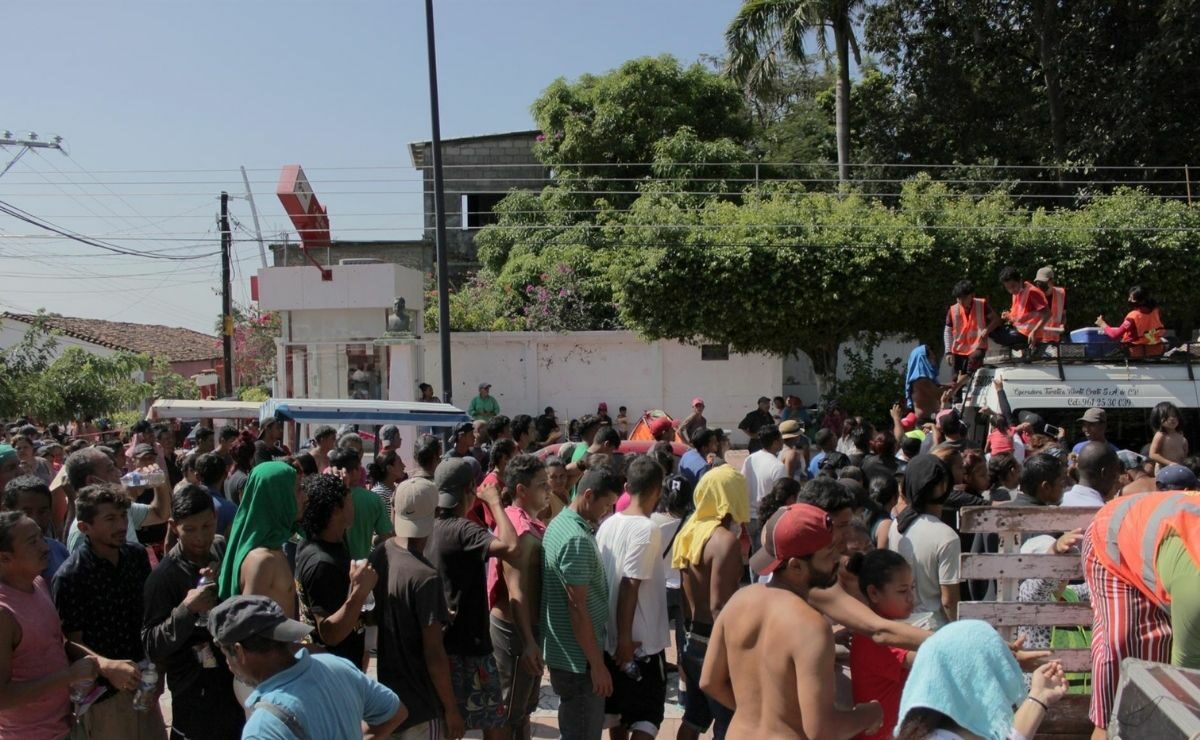A mass of migrants makes their way from Mexico

Another mass made up of some 6,000 passers-by, mostly from Haiti, El Salvador, Honduras and Guatemala, departed this Saturday from the Mexican city of Tapachula, in the southern province of Chiapas, bordering Guatemala, although currently with a new objective towards Mexico City.
Travelers try to get to the Mexican currency to regularize their circumstances before the National Institute of Migration (INM), which is important for the Ministry of the Interior.
After a few days of getting ready to leave Tapachula, a city that has seen the rare appearance of thousands of passersby from something like 11 nations of late, the train began its journey.
They carried bags, backpacks, sacks, water, cars, umbrellas, as well as the figure and any desire to have the option of reaching their goal and then trying to enter the United States.
The travelers' walk "for opportunity, nobility and harmony" began this Saturday at 8:00 am (13:00 GMT) from the Bicentennial Park, in the city of Tapachula, and seeks to go exactly 1,160 kilometers to the Mexican capital.
Certainty and encouragement
At the voice of "Yes it can, yes it can!" the city and traveled its first kilometers of exit which is for all intents and purposes on the shore of Chiapas.
Salvadoran Isaac Andrés told Efe that the INM does not allow them to leave Chiapas despite the fact that they have files and, despite the fact that they have been working in Tapachula, vacancies are scarce or non-existent.
"We are adulterated individuals, and we need to satisfy our fantasies, we are going to walk as far as we go, there is no fear, there is nothing, we need to arrive to satisfy our objectives," he added.
Unlike other trains, the band of this day advances at a slow speed, because within the norms of the association, the ladies and the young people must restrain themselves so as not to be abandoned and be retained by the National Guard or the specialists of Migration.
Honduran Edgar Antonio Gutiérrez, who has been stationed on the southern border of Mexico for a long time, commented that specialists have them trapped in Tapachula, and although he tried to improperly "buy" the authority's records, it was not effective.
"With harmony and opportunity, we will ask the National Migration Institute to let us pass. They have trapped us, insured us, and we have to look for our opportunity," he told Efe.
Most travelers walk around with banners from their individual nations and a go through where temperatures reach over 36 degrees Celsius.
Associations and activists
This troop is joined by activists Luis Rey García Villagrán, facilitator of the Center for Human Dignification of Tapachula, and the protector of basic freedoms Irineo Mujica, head of the NGO Pueblo Sin Fronteras in Mexico, who said that the train is not looking for any confrontation and that travelers only need to be listened to and their requirements met.
"Let's go with God and calm down and what we ask is that the regulatory systems be addressed," they said.
Last Wednesday, García Villagrán and Mujica brought 46 packages with requests for protection to the government judges so that they would allow travelers to leave Tapachula by convoy and continue their excursion to the United States.
In the main sections of September, the Mexican specialists defeated the development of four bands of travelers that withdrew permanently from Tapachula.
At that time, some UN and NGO offices rebuked the use of power in the tasks to deteriorate these caravans.
Break the fence
After about three hours of movement, the gang faced and overcame the main attack by specialists from the National Guard and the State Police.
In the activity, the travelers held hands, framed a square and advanced towards the line of government powers, which supported them with revolt teams on a bridge.
Amid jostling, bumping, and screaming, the outsiders rushed past the barricade mounted by the specialists. While in control of the convoy, some National Guard ladies were run over by the group and fell to the ground.
The impact, which lasted for about 30 minutes, harmed some young men and women who were treated by the Civil Protection personnel accompanying the march.
After the episode, the travelers continued with their development, watched over by specialists from the state, immigration and the National Guard, whose work is seen by professors from the National Human Rights Commission (CNDH).
The state member of the INM in Chiapas, Aristeo Taboada, called the attention of the media that travelers "have been given terrible information and are being deceived" that they are going to acquire a legitimate status in Mexico.
The town has encountered an extraordinary flood of relocation since the beginning of the year, with a notable progression of 147,000 undocumented transients identified in Mexico from January to August, triple the number in 2020.
